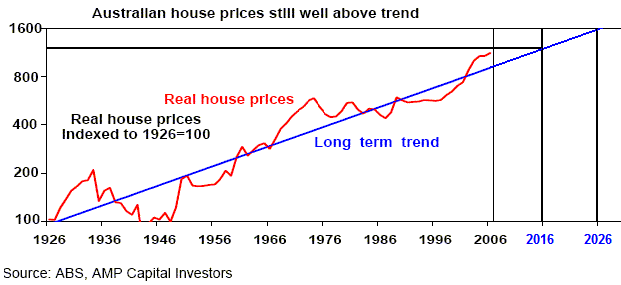two tiers: rich and poor.
no middle class, as those who currently "have" (assets and financial ability) will get richer, in his opinion, and those that "have not" will get poorer due the the above reasons. nb: emerging socities like china and india are growing their middle class but this class is disappearing in developed countries.
so, does that mean that those who have the ability will end up with the affluent properties to live in and the lower rungs of properties for renting - and those who do not have the ability will be perpetual renters?
wonder what will happen with the upgrading middle class?
***********************************************
Dear Lizzie,
1. In Singapore, our Middle Class first started to appear in late 1960s and has been growing till 1990s. Consequently, the majority of Singaporeans are deemed to be in the Middle Class status, being able to "own" their own HDB public flats with/without an existing HDB Loan Mortgage.
2. With property prices in Singapore starting to rise rocket-high in the 1990s, this Middle Class subsequently began to be polarised towards 2 basic groups, the Rich who are afford to own and live in private properties and the Poor who "rent" to live in Public flats, through their own respective "social upgrading" and "down-grading" exercises.
3. While the owners of the private properties in Singapore, can easily mortgage their properties to the banks in exchange for cash and for their investment capital, the owners of the HDB flats could not raise any funds with their HDB "public flat" ownership titles.
4. Beside the Middle Class, many of the Rich also suffered from negative house equity during the post 1997 Asian Financial Crises period.
5. Many of them were thus forced to down-grade themselves into living in the cheaper HDB public flats while a number of them lost their wealth over-night, following loan recall, subsequent public seizure of their properties by their lending banks and were thus forced to "rent" to live in.
6. Consequently, many of the so-called "Middle Class" in Singapore become "asset rich but cash poor".
7. With continued rising housing price and high living costs, some of the ex-Middle Class Singaporean families eventually become the new "urban poor" in Singapore today, not having sufficient cash to upkeep their own family' daily expenses as a result of their "expensive" lifestyle patterns, of owning/maintaining a private car, mobile phone, cable TV and Internet subscription, taking annual overseas family holidays etc, as well as the need to provide for their elderly family members.
8. With the aging of the babyboomer generations, many of these Singaporeans are actually "down-sizing" their public flats presently. Many of them have also opted to continue working after reaching their normal retirement age of 62, in order to provide sufficient cash/savings for their own daily expenses for the remaining part of their earthly lives.
8. The Singapore Govt is now converting some of their unsold excess HDB flats supply as rental flats for these urban poor to live in during their old age as well as providing short term 30 years leasehold tenure HDB flats at more affordable prices of about S$45,000.
9. Thus, apparently, the Middle Class in Singapore has effectively shrunked in size over the last 20 years, with the fast-emerging of the new urban poor.
10. There is also a fast emerging trend for many of these newly urban poor opting to further "down-grade" themselves towards "renting" a public flat to live in for the rest of their lives.
11. Likewise, I understand that the Middle Class is fast disappearing in Scotland today too, with many of them only able to afford to "rent" on stay on their existing properties.
12. For your further comments and discussion, please.
13. Thank you.
Cheers,
Kenneth KOH



